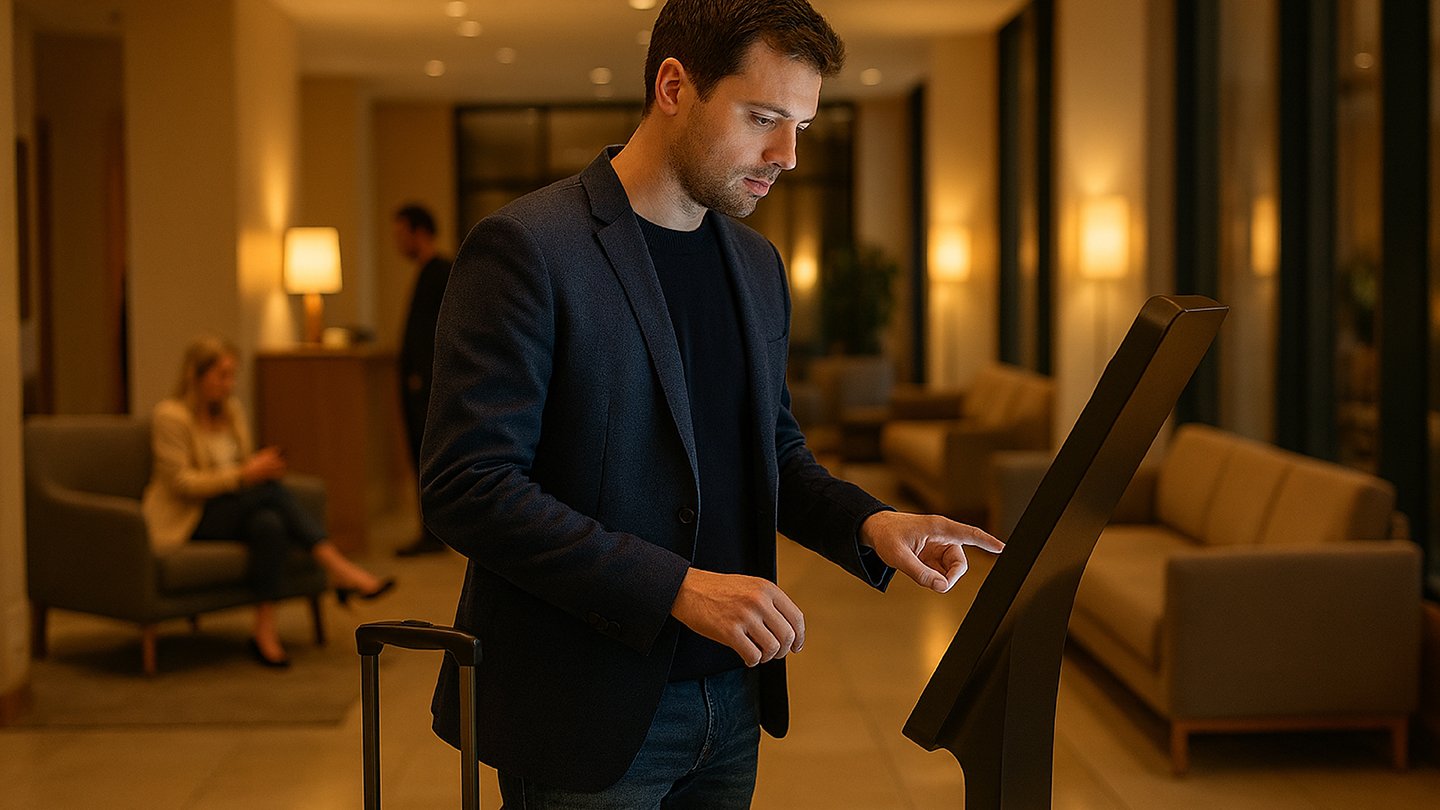The ROI of Guest Autonomy: Why Giving Guests More Control is Good for Business
Tyler Curtis

HOSPITALITY, AT ITS HEART, HAS ALWAYS BEEN ABOUT SERVICE.
That hasn’t changed one bit. What has changed, is what service actually means. We live in something of a paradox today, where great service often means stepping back and letting guests take the lead.
That might sound counter‑intuitive. After all, hotels have built their reputations on attentive, personalised service. But the definition of “personalised” is also changing. Today’s travellers don’t just want you to anticipate their needs – they want the freedom to decide how and when those needs are met.
And that’s where guest autonomy comes in.
Autonomy = Satisfaction
According to skift.com, a leading intelligence and marketing platform for the travel industry, 73% of hotel guests are more likely to stay at a hotel that offers self-service technology. The study shows that some will even refuse to book a hotel that doesn't offer digital options, highlighting the growing link between a guest’s ability to choose how they interact with hotel services and higher satisfaction.
And that’s not just about check‑in. It’s everything from ordering room service to booking spa treatments, requesting housekeeping, or even choosing how to pay their bill.
When guests feel in control, they’re happier. And happy guests spend more.
Think about the last time you stayed somewhere that gave you options: mobile check‑in or front desk, app‑based ordering or in‑person dining, digital key or keycard. That sense of choice makes the experience feel tailored – even if the underlying service is the same.
The revenue connection
Autonomy isn’t just a feel‑good factor. It’s a revenue driver.
Across industries, a range of studies report that self-service kiosks see transaction values increase by an average of 20%. Why? Because guests are more likely to explore add‑ons when they’re not feeling rushed or “sold to” by a person.
A kiosk can quietly suggest a late checkout, a bottle of wine, or a room upgrade without any pressure. It can offer a glass of champagne with their spa treatment. Guests can say yes or no in their own time. And when they say yes, it feels like their decision, not a sales pitch.
Operational wins
Guest autonomy also smooths operations in ways that directly impact the bottom line.
When guests handle routine tasks themselves – from printing receipts to requesting extra towels – staff can focus on complex or high‑touch needs. That means fewer bottlenecks, faster response times, and better morale for your team.
It also helps with staffing flexibility. In an industry still grappling with labour shortages, self‑service technology can absorb the repetitive, time‑consuming tasks, allowing hotels to operate efficiently without compromising service quality.
Operational efficiency may be invisible to the guest – but its effects are not. Shorter waits, faster resolutions, and more attentive staff all feed back into higher satisfaction scores.
The trust factor
Giving guests control sends a subtle but powerful message: we trust you. And in return, they trust you back.
That trust translates into loyalty, and loyalty is the cheapest form of marketing you’ll ever invest in. According to Deloitte, loyal customers are five times more likely to return and four times more likely to recommend a brand to friends and family.
Trust also builds resilience. When something does go wrong – a delayed room, a maintenance issue – guests who feel empowered are more likely to be forgiving, because they’ve experienced your brand as one that respects their time and preferences.
The takeaway
Autonomy doesn’t replace hospitality. It amplifies it.
By letting guests choose their own path, you’re not stepping away from service — you’re stepping up to a new definition of it. One where the guest is in the driver’s seat, and your role is to make sure the road is smooth, the scenery is beautiful, and the destination is exactly what they hoped for.
In a competitive market, that’s not just good service. That’s good business.
If you’d like to learn more about how our smart automation solutions can enhance your guest experience, have a chat with one of our team.
Never miss the latest blog